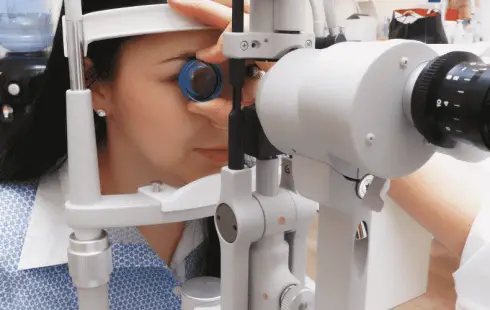
Pantone's Color of the Year an Endless Neutral Loop
Section: Fashion
 In today's digital age, where screens are ubiquitous and lifestyles are increasingly sedentary, the importance of maintaining optimal eye health cannot be overstated. From preventing vision loss to detecting early signs of eye diseases, regular eye care and check-ups are essential for preserving one of our most precious senses. In this comprehensive guide, we explore the fundamentals of eye care, highlight the importance of regular check-ups, and offer practical tips for maintaining healthy eyesight.
In today's digital age, where screens are ubiquitous and lifestyles are increasingly sedentary, the importance of maintaining optimal eye health cannot be overstated. From preventing vision loss to detecting early signs of eye diseases, regular eye care and check-ups are essential for preserving one of our most precious senses. In this comprehensive guide, we explore the fundamentals of eye care, highlight the importance of regular check-ups, and offer practical tips for maintaining healthy eyesight.
The eyes are complex organs that enable us to see the world around us. They consist of various structures, including the cornea, iris, lens, and retina, each with its own unique function in the process of vision. The cornea and lens refract light onto the retina, where images are formed and transmitted to the brain via the optic nerve.
Maintaining optimal eye health involves a combination of factors, including:
The Importance of Regular Eye Check-ups
Regular eye check-ups are critical for detecting and addressing potential eye problems early, before they escalate into more serious conditions. During a comprehensive eye exam, an optometrist or ophthalmologist will evaluate various aspects of your eye health, including:
Practical Tips for Maintaining Healthy Eyesight
In addition to regular eye check-ups, there are several practical steps you can take to promote and preserve healthy eyesight:
In conclusion, taking care of your eyes and scheduling regular check-ups are essential steps in preserving lifelong vision wellness. By understanding the basics of eye health, prioritizing preventive care, and following practical tips for maintaining healthy eyesight, you can safeguard one of your most valuable senses for years to come. Remember, your eyesight is precious--don't wait until problems arise to prioritize your eye health. Schedule a comprehensive eye exam today and take proactive steps to ensure optimal vision wellness for life.
Image by Paul Diaconu from Pixabay

Section: Fashion

Section: News

Section: Fashion

Section: Arts

Section: Politics

Section: Health Insurance

Section: News

Section: News

Section: News

Section: Arts
Both private Health Insurance in Germany and public insurance, is often complicated to navigate, not to mention expensive. As an expat, you are required to navigate this landscape within weeks of arriving, so check our FAQ on PKV. For our guide on resources and access to agents who can give you a competitive quote, try our PKV Cost comparison tool.
Germany is famous for its medical expertise and extensive number of hospitals and clinics. See this comprehensive directory of hospitals and clinics across the country, complete with links to their websites, addresses, contact info, and specializations/services.
Join us for an enchanting Christmas adventure at the Münchner Marionettentheater! Experience the marionette play 'Der verschwundene Wunschzettel' by Siegfried Böhmke, featuring our beloved Kasperl Larifari and his little friend Stupsi. As Christmas approaches, both Kasperl and Stupsi have prepared...



No comments yet. Be the first to comment!